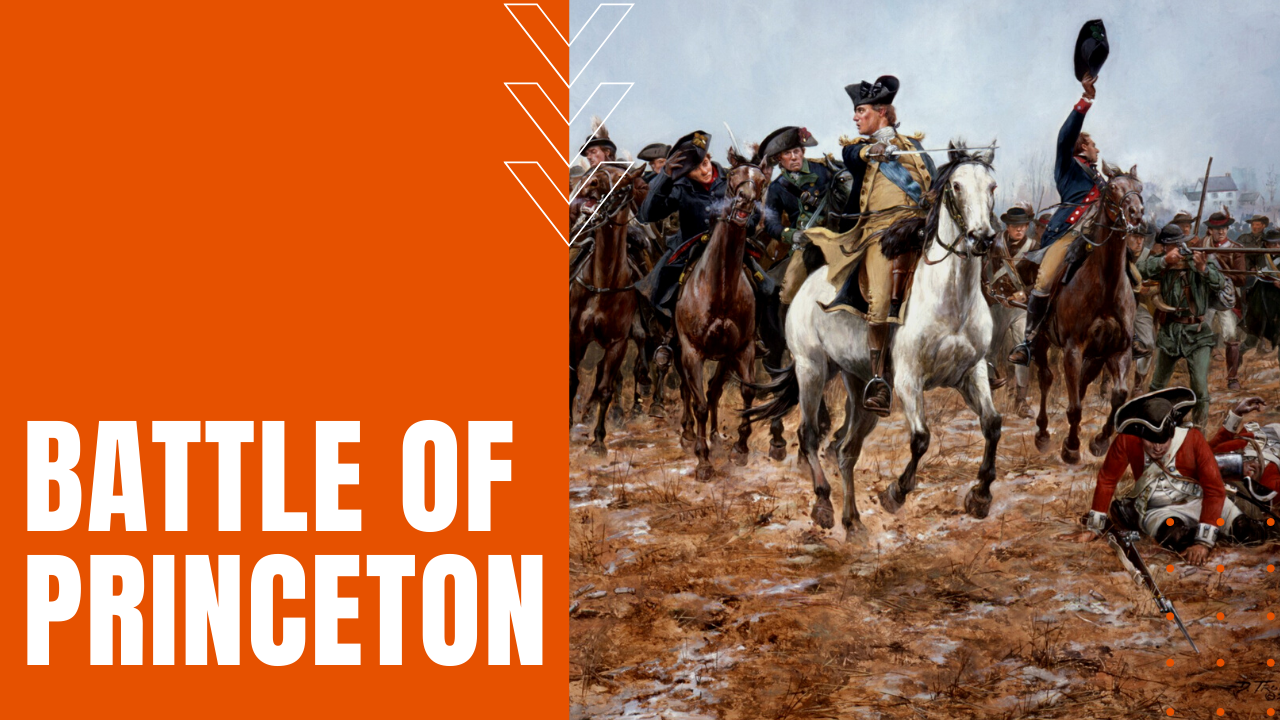Battle of Princeton

Following a string of defeats in New York in the summer and fall of 1776, Continental Army commander George Washington set out on a January 1777 campaign that began with a successful attack on isolated Hessian forces garrisoned at Trenton New Jersey.
From Trenton to Princeton
In response, British General William Howe dispatched Charles Cornwallis from New York to New Jersey, attacking Washington’s forces at Trenton on January 2nd, leading the Americans to successfully hold their position beside Assunpink Creek.
After nightfall that same day, Washington convened a council of his officers, who decided as a group that it was impractical to defend their creek position and likely unwise to retreat south the way they came. Instead, they set out under the cover of darkness for the small college town of Princeton New Jersey, leaving behind a small contingent of soldiers who maintained campfires intended to convince British scouts that Washington’s full force remained in camp.
Still, some two miles from Princeton as dawn broke, Washington amended his original plan of an assault on British forces from the undefended east side of town, ordering Brigadier General Hugh Mercer to destroy a vital bridge back toward Trenton, while the main force led by Major General John Sullivan would continue on to Princeton.
Battle of Princeton
Earlier the night before, while Washington convened with his officers, Cornwallis ordered Lieutenant Colonel Charles Mawhood to send the bulk of his 1,200-man garrison back toward Trenton for a planned assault on Washington’s creekside encampment, but when Mawhood spotted Washington’s forces at dawn, a running battle ensued as both sides attempted to reach Princeton before the other.
Initially, Mercer’s men were beaten back by highly-trained British light infantrymen, which cost Mercer his life during the skirmishes. After Washington ordered John Cadwalader’s brigade to defend Mercer’s retreating army, Cadwalader’s men initially broke upon sighting the British, until troops led by Washington himself took to the battlefield, causing his aide de camp John Fitzgerald to fear for Washington’s life.
After the British broke rank and fled the field, Washington could be heard shouting:
“It is a fine fox chase my boys!”
George Washington
By the end of the battle, the Americans saw 25 killed in action and 40 wounded, while the British saw 20 fatalities, 60 wounded and 200 made prisoners of war. After the Battle of Princeton, the British retreated back to New York, while New Jersey was returned to full American control, making the Battle of Princeton an important morale booster during the Patriot’s ongoing push for American independence.
